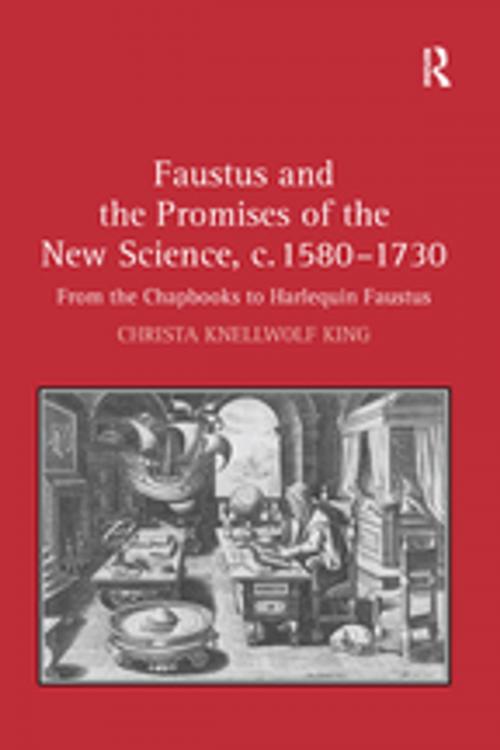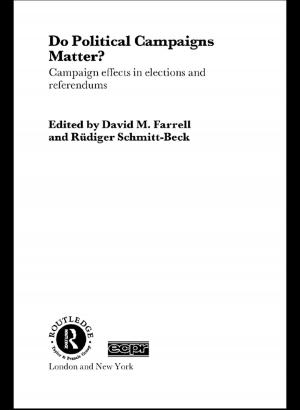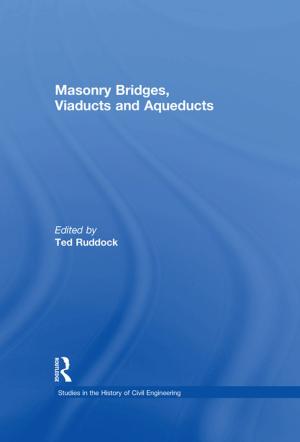Faustus and the Promises of the New Science, c. 1580-1730
From the Chapbooks to Harlequin Faustus
Fiction & Literature, Literary Theory & Criticism| Author: | Christa Knellwolf King | ISBN: | 9781351936910 |
| Publisher: | Taylor and Francis | Publication: | December 5, 2016 |
| Imprint: | Routledge | Language: | English |
| Author: | Christa Knellwolf King |
| ISBN: | 9781351936910 |
| Publisher: | Taylor and Francis |
| Publication: | December 5, 2016 |
| Imprint: | Routledge |
| Language: | English |
Having identified the literary origins of the Faustus legend in the German Faust Book (1587) and its English translation (1592), this book argues that these works transformed a simple rogue's tale into an incisive study of morality and beliefs. The chapbooks' contrastive portrayal of an imaginary experience of hell and a pseudo-scientific journey through the cosmos is interpreted as an unconventional approach to the questions of an inquiring mind. This study offers the first analysis of the chapbooks as literary works in their own right, as opposed to simply being sources for Christopher Marlowe's play. It is also the first study to describe the Faustus typology as a vehicle by which uncompromising thinkers of early modernity and the Enlightenment questioned contemporary views about religion, morality and the possibility of experiencing transcendence. While arguing that Marlowe's Doctor Faustus primarily examines the imaginary foundations of religious rules and standards, the author suggests that the 1616 version of the play revived the chapbooks' accounts of spiritual ravishment and intellectual ecstasy. Imaginary explorations of cosmic space became popular in the seventeenth century and gave rise to strongly diverging works of literature, embracing the arcane spirituality of Milton's Paradise Lost as well as Fontenelle's sociable but essentially secular fantasy of cosmic travel. This book shows that contemporary responses to early modern science also tended to address the most urgent concerns of the Faustus legend, explaining the re-emergence of the typology in Mountfort's late seventeenth-century farcical Faustus play and early eighteenth-century harlequinades about Doctor Faustus
Having identified the literary origins of the Faustus legend in the German Faust Book (1587) and its English translation (1592), this book argues that these works transformed a simple rogue's tale into an incisive study of morality and beliefs. The chapbooks' contrastive portrayal of an imaginary experience of hell and a pseudo-scientific journey through the cosmos is interpreted as an unconventional approach to the questions of an inquiring mind. This study offers the first analysis of the chapbooks as literary works in their own right, as opposed to simply being sources for Christopher Marlowe's play. It is also the first study to describe the Faustus typology as a vehicle by which uncompromising thinkers of early modernity and the Enlightenment questioned contemporary views about religion, morality and the possibility of experiencing transcendence. While arguing that Marlowe's Doctor Faustus primarily examines the imaginary foundations of religious rules and standards, the author suggests that the 1616 version of the play revived the chapbooks' accounts of spiritual ravishment and intellectual ecstasy. Imaginary explorations of cosmic space became popular in the seventeenth century and gave rise to strongly diverging works of literature, embracing the arcane spirituality of Milton's Paradise Lost as well as Fontenelle's sociable but essentially secular fantasy of cosmic travel. This book shows that contemporary responses to early modern science also tended to address the most urgent concerns of the Faustus legend, explaining the re-emergence of the typology in Mountfort's late seventeenth-century farcical Faustus play and early eighteenth-century harlequinades about Doctor Faustus















